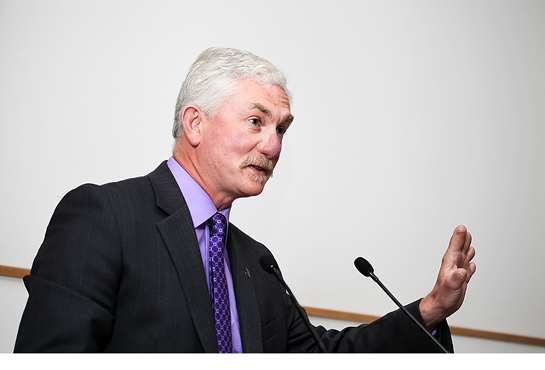You may think that English is the common language of the British Isles, but many people speak dialects which contain words that confuse and confound. Just ask yourself what you call a cob..? Whilst you are scratching your head, let me translate. In Derbyshire we eat cobs, but they are also known as rolls, bread cakes, baps, bread buns, barmcakes and even a softy. You might question what point I’m trying to make here..? When you’re speaking with an audience, never assume they understand what you’re talking about.
I’ve been presenting for almost two decades, and one of the most important lessons I’ve learned, is to speak in a language everyone can understand. Using unusual phrases or technical words (and particularly acronym’s) will lose your audience within minutes. In mountaineering we have a stunning set of weird and wonderful names describing all manner of things, which mean nothing to most people. Engineering is even worse for technical talk, so we must simplify the words to fit the audience. It doesn’t sound hard, but I’ve listened to (so-called) world-renowned speakers, who have lost me in minutes. Always ask the organiser what the audiences background is before boring them to death with technical jargon. Considering the age group of your audience is also useful as words such as ‘twerking’ (recently accepted into the Oxford English Dictionary), will confuse anyone over 40..!
Working in foreign languages also brings its challenges, as you may be speaking through an interpreter. Always meet with them well before you go on stage, to clarify any technical words or phrases. This will prove vital when the onstage. Consider pace, give the translator time to speak, and don’t go on and on, hoping they can remember all your words. I’ve spoken in Germany and Brazil, where the audience wanted to improve their English, so I spoke clearly and concisely, but not too slow as to patronise or insult. Question and answer session take much longer as translation moves both ways, so consider this when planning timescales. The same goes for presenting. I usually think a 40 minute presentation takes an hour if translated.
I recently presented at the Royal School for the Deaf in Derby. I cannot sign, so an interpreter was assigned to work with me. Having a few minutes preparation proved vital. The pupils were studying adventure sports, but none of them had ever been up a mountain, so using words such as Bergschrunds, Karabiner and Prusik would have only confused them. Long winded names are difficult to sign, but countries are simple and we used them to great effect. Any word can be spelled by individual letter, but this takes time, so checking beforehand pays dividends.
In essence, if the audience doesn’t understand what you’re talking about, what’s the point of you speaking..?
